Posted: 26 Oct 2018 08:45 AM PDT
Andrographis Instead of the Flu Vaccine
Posted on October 25, 2018
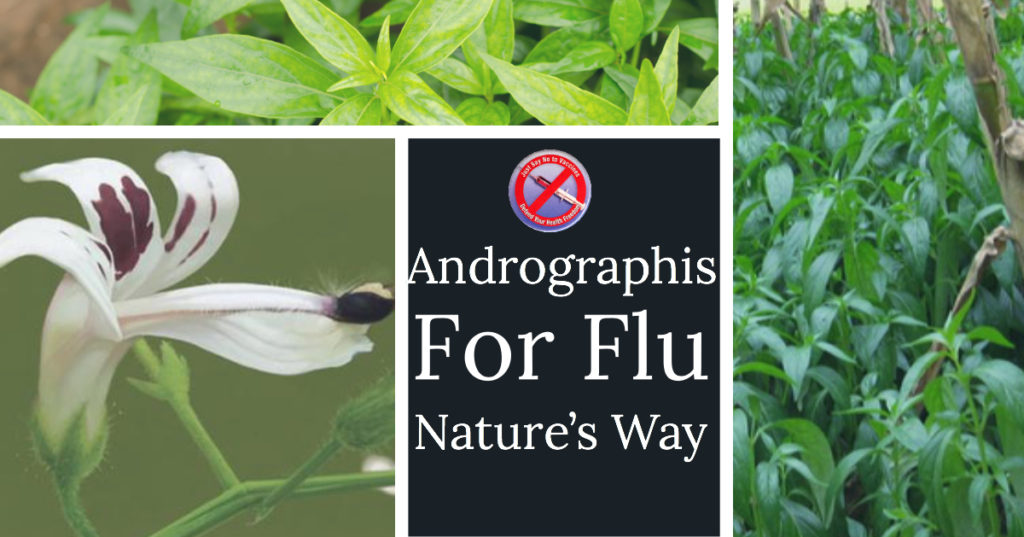
By Rosanne Lindsay, ND
Get ready to prepare for winter and the propaganda to come that claims that everyone needs to be injected with a universal flu vaccine to protect against a “rare” polio-like” flu. Reflect before you inject!
Always question the fear factor. Ask why do only children seem to be afflicted with this “mystery illness?” Is this the same mystery illness tied to enteroviruses (EV-D68), that stumped doctors in 2015? In 2013, V-D68 was known to contribute to acute flaccid myelitis. Why do the CDC and health authorities now claim that vaccines have “almost eradicated polio?” How do they measure “almost?” Is it because polio myelitis now goes under the pseudonyms of Guillain Barré Syndrome and Acute Flaccid Paralysis? Is this rare new illness caused by a rare virus that is a lab-created enterovirus or the same enterovirus as before?
There’s absolutely no way to tell if an infection is caused by bacteria or virus (wild or artificial) without a test. Why do health authorities rarely, if ever, test to see if you have a virus? Because they cannot identify the specific virus since viruses survive by living inside a host cell. Viruses work incognito. So any test would either rule out a bacterium or test for antibodies to the virus you already had. If you already create antibodies against the targeted virus, do you really need a vaccine? Note that paralytic disease by any other name is caused by toxins in the environment, including vaccine-associated paralytic polio (see left side of image below). The truth is that according to Novartis patent EP2301572 A1, Enteroviruses and Coxackie viruses are used in the manufacture of both the inactivated Polio vaccine and the Oral Polio Vaccine since 2013.
 There is another way: Nature’s way! To prevent the flu, you only need to enhance your immune system naturally with herbs.
There is another way: Nature’s way! To prevent the flu, you only need to enhance your immune system naturally with herbs.
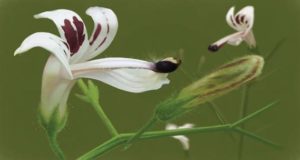 Considered to be “the king of bitters,” Andrographis paniculata is called “God’s Gift.” It is a bitter, cooling, astringent herb that strengthens the respiratory tract, as well as protects the liver and heart, and supports the digestive system. This builds a strong immune system. A few drops daily of Andrographis tincture before winter sets in can be used as a preventative against colds and flus, and tonsillitis.
Considered to be “the king of bitters,” Andrographis paniculata is called “God’s Gift.” It is a bitter, cooling, astringent herb that strengthens the respiratory tract, as well as protects the liver and heart, and supports the digestive system. This builds a strong immune system. A few drops daily of Andrographis tincture before winter sets in can be used as a preventative against colds and flus, and tonsillitis.
Andrographis is native to southern India and Sri Lanka, Thailand, China, India, and Pakistan so you won’t find it in your backyard. Andrographis grows in several habitats, including plains, hillsides, and coastlines. It is also found in disturbed and cultivated areas such as roadsides, farms, and wastelands.This shrub is grown as an annual or biennial bush in full sun or partial shade to a height of 18 inches to over 4 feet.
The shrub’s small flowers are tubular-shaped and white with pale violet streaks. The seeds are known to drop quickly if not harvested. The leaves have no scent.
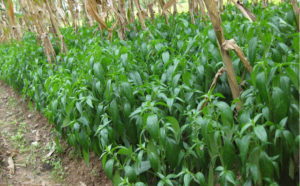 The herb has been widely used as a treatment for the common cold, flu, and a variety of infectious diseases and has been reviewed in the literature as a treatment for upper respiratory infections. Other herbs used for the flu are Elderberry (Sambucus nigra), Anise Hyssop (Hyssopus officianalis), Schizandra (Schizandra chinensis), Garlic (Allium sativum), Goldenseal root (Hydrastis Canadensis), Echinacea (Echinacea angustifolia; E. pallida; E. Purpurea), Boneset (Eupatorium perfoliatum), and Yarrow (Achillea millefolium). See an herbalist for correct dosing for each herb. See herbs for colds here. But there’s more!
The herb has been widely used as a treatment for the common cold, flu, and a variety of infectious diseases and has been reviewed in the literature as a treatment for upper respiratory infections. Other herbs used for the flu are Elderberry (Sambucus nigra), Anise Hyssop (Hyssopus officianalis), Schizandra (Schizandra chinensis), Garlic (Allium sativum), Goldenseal root (Hydrastis Canadensis), Echinacea (Echinacea angustifolia; E. pallida; E. Purpurea), Boneset (Eupatorium perfoliatum), and Yarrow (Achillea millefolium). See an herbalist for correct dosing for each herb. See herbs for colds here. But there’s more!
Andrographis is a traditional herbal treatment for diarrhea, dysentery, cholera, pneumonia, swollen lymph nodes, leprosy, bronchitis, urinary, kidney and hepato-protectant, and sore throats, too. Other folk medicinal uses of the herb are as a treatment for tuberculosis, chicken pox, coughs, headaches, ear infection, inflammation, burns, and mumps. Organ system affinities for lymph, immune, blood, digestive, and urinary tract.
And move over mosquitoes! Andrographis was also used as a treatment for malaria, as a replacement for quinine.
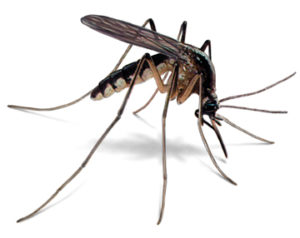 This shrub stimulates the body’s natural immune function. As such, andrographis prevents the proliferation of cancer cells.
This shrub stimulates the body’s natural immune function. As such, andrographis prevents the proliferation of cancer cells.
According to the American Botanical Council, andrographolides in the plant increase the production of white blood cells, to support the release of interferon, and to promote the healthy activity of the lymphatic system. It can ward off secondary illnesses while undergoing cancer treatments due to its antioxidant effects.
As a medicinal herb, Andrographis is used as an anti-inflammatory. Therefore, it is an herbal remedy for pain associated with muscular pain, arthritis, rheumatism, fibromyalgia and multiple sclerosis. See other herbs for arthritis and rheumatism here and herbs for fibromyalgia here.
Andrographis’ antioxidant properties aid in sugar regulation in people with diabetes by reducing blood sugar concentration. If on diabetes medications, monitor your blood sugar since it has a similar effect.
Chinese herbal medicine has used Andrographis in the treatment of liver and gallbladder conditions such as viral hepatitis, jaundice, drug-induced liver damage, liver congestion and sluggish liver. Other herbs for hepatitis are found here. It is as effective as silymarin (the active component in milk thistle) in protecting the liver.
Clinical studies in China show that it helps to prevent blood clot formation. There, it is used as an herbal treatment for atherosclerosis and heart attack.
Some studies have shown that andrographis may help prevent “reclogging” of arteries following angioplasty.
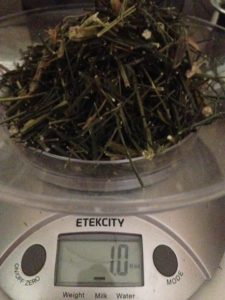 The “aerial parts,” or leaves and stems are used in herbal medicine. And you can make it yourself!
The “aerial parts,” or leaves and stems are used in herbal medicine. And you can make it yourself!
Extracts of andrographis may be used in amounts of up to 400 mg twice a day for up to 10 days with standardized extracts of 5- to 6- percent andrographolide.
The plant is usually ready for harvesting after three months or so when it is in bloom. The plant material is dried for later use in powdered form or as capsules, tea or tinctures.
Andrographis contains diterpene lactones, glycosides and flavonoids, alkaloids, phenols, catechine, saponins, and tannins.
Dosing of alcohol tincture: Up to 30-60 drops 3-4 times a day. Follow instructions on label if purchased, or use it in a formula as one of four herbs.
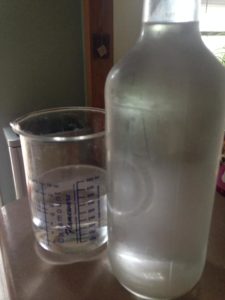 As a tea: Add one teaspoon of the dried andrographis leaves and one cup of boiling water in a teapot or infuser. Allow the infusion/tea to steep for 5 to 10 minutes. The tea is regarded to be most effective when sipped on an empty stomach.
As a tea: Add one teaspoon of the dried andrographis leaves and one cup of boiling water in a teapot or infuser. Allow the infusion/tea to steep for 5 to 10 minutes. The tea is regarded to be most effective when sipped on an empty stomach.
Use 10 to 12 grams of the fresh herb’s leaves. Up to 6 grams of dried herb per day may be used, but the bitter taste may challenge that amount for most users. To take the edge off some of the bitter taste, follow the tea with fresh fruit or dried cranberries.
As with all herbal remedies use Andrographis paniculata with caution. Few side effects have been reported, making it safe for many users; there were some cases of itchy skin.
People with known gallbladder diseases should not use andrographis, nor in people suffering from myasthenia gravis, or those with high blood pressure or cardiac or kidney conditions. Avoid while on chemotherapy, anticoagulants and anti-platelet drugs, and with immune-suppressing drugs. Women who are pregnant, breastfeeding or anticipating becoming pregnant should not use this herb as it can act as an abortive. Note: Echinacea is similar and has fewer contraindications, but echinacea is contraindicated in autoimmune conditions because it amplifies immune response.
A flu or cold is your body’s natural response to toxins in your environment that suppress your immune system. Therefore, boosting immunity is key. Ask yourself why does the new “rare flu” only attack children? Is it because children are the ones getting the most vaccines? Are these flus the result of flu clinics now set up in the public schools?
Your body is created to interact with nature to heal itself, and science conclusively shows the healing benefits of herbs. So there is no excuse not to go to herbs for relief. Our relationship with herbs as fellow healers has been known and used for millennia. The Earth provides all that is needed.
Rosanne Lindsay is a Naturopath, writer, Earth keeper, Health Freedom advocate, co-founder of Wisconsin For Vaccine Choice, and author of the books The Nature of Healing, Heal the Body, Heal the Planet.and Free Your Voice, Heal Your Thyroid, Reverse Thyroid Disease Naturally. Find her on Facebook at Rosanne Lindsay and Natureofhealing. Consult with her (Skype or Zoom consults available) at natureofhealing.org. Subscribe to her blog at http://www.natureofhealing.org/blog/., where this article first appeared.
Thanks to: https://www.naturalblaze.com
Posted on October 25, 2018

By Rosanne Lindsay, ND
Get ready to prepare for winter and the propaganda to come that claims that everyone needs to be injected with a universal flu vaccine to protect against a “rare” polio-like” flu. Reflect before you inject!
The Fear Factor
Always question the fear factor. Ask why do only children seem to be afflicted with this “mystery illness?” Is this the same mystery illness tied to enteroviruses (EV-D68), that stumped doctors in 2015? In 2013, V-D68 was known to contribute to acute flaccid myelitis. Why do the CDC and health authorities now claim that vaccines have “almost eradicated polio?” How do they measure “almost?” Is it because polio myelitis now goes under the pseudonyms of Guillain Barré Syndrome and Acute Flaccid Paralysis? Is this rare new illness caused by a rare virus that is a lab-created enterovirus or the same enterovirus as before?
There’s absolutely no way to tell if an infection is caused by bacteria or virus (wild or artificial) without a test. Why do health authorities rarely, if ever, test to see if you have a virus? Because they cannot identify the specific virus since viruses survive by living inside a host cell. Viruses work incognito. So any test would either rule out a bacterium or test for antibodies to the virus you already had. If you already create antibodies against the targeted virus, do you really need a vaccine? Note that paralytic disease by any other name is caused by toxins in the environment, including vaccine-associated paralytic polio (see left side of image below). The truth is that according to Novartis patent EP2301572 A1, Enteroviruses and Coxackie viruses are used in the manufacture of both the inactivated Polio vaccine and the Oral Polio Vaccine since 2013.
 There is another way: Nature’s way! To prevent the flu, you only need to enhance your immune system naturally with herbs.
There is another way: Nature’s way! To prevent the flu, you only need to enhance your immune system naturally with herbs.Andrographis To The Rescue
 Considered to be “the king of bitters,” Andrographis paniculata is called “God’s Gift.” It is a bitter, cooling, astringent herb that strengthens the respiratory tract, as well as protects the liver and heart, and supports the digestive system. This builds a strong immune system. A few drops daily of Andrographis tincture before winter sets in can be used as a preventative against colds and flus, and tonsillitis.
Considered to be “the king of bitters,” Andrographis paniculata is called “God’s Gift.” It is a bitter, cooling, astringent herb that strengthens the respiratory tract, as well as protects the liver and heart, and supports the digestive system. This builds a strong immune system. A few drops daily of Andrographis tincture before winter sets in can be used as a preventative against colds and flus, and tonsillitis.Andrographis is native to southern India and Sri Lanka, Thailand, China, India, and Pakistan so you won’t find it in your backyard. Andrographis grows in several habitats, including plains, hillsides, and coastlines. It is also found in disturbed and cultivated areas such as roadsides, farms, and wastelands.This shrub is grown as an annual or biennial bush in full sun or partial shade to a height of 18 inches to over 4 feet.
The shrub’s small flowers are tubular-shaped and white with pale violet streaks. The seeds are known to drop quickly if not harvested. The leaves have no scent.
Andrographis For Colds And Flu And More
 The herb has been widely used as a treatment for the common cold, flu, and a variety of infectious diseases and has been reviewed in the literature as a treatment for upper respiratory infections. Other herbs used for the flu are Elderberry (Sambucus nigra), Anise Hyssop (Hyssopus officianalis), Schizandra (Schizandra chinensis), Garlic (Allium sativum), Goldenseal root (Hydrastis Canadensis), Echinacea (Echinacea angustifolia; E. pallida; E. Purpurea), Boneset (Eupatorium perfoliatum), and Yarrow (Achillea millefolium). See an herbalist for correct dosing for each herb. See herbs for colds here. But there’s more!
The herb has been widely used as a treatment for the common cold, flu, and a variety of infectious diseases and has been reviewed in the literature as a treatment for upper respiratory infections. Other herbs used for the flu are Elderberry (Sambucus nigra), Anise Hyssop (Hyssopus officianalis), Schizandra (Schizandra chinensis), Garlic (Allium sativum), Goldenseal root (Hydrastis Canadensis), Echinacea (Echinacea angustifolia; E. pallida; E. Purpurea), Boneset (Eupatorium perfoliatum), and Yarrow (Achillea millefolium). See an herbalist for correct dosing for each herb. See herbs for colds here. But there’s more!Andrographis is a traditional herbal treatment for diarrhea, dysentery, cholera, pneumonia, swollen lymph nodes, leprosy, bronchitis, urinary, kidney and hepato-protectant, and sore throats, too. Other folk medicinal uses of the herb are as a treatment for tuberculosis, chicken pox, coughs, headaches, ear infection, inflammation, burns, and mumps. Organ system affinities for lymph, immune, blood, digestive, and urinary tract.
And move over mosquitoes! Andrographis was also used as a treatment for malaria, as a replacement for quinine.
An Immune and Anti-Cancer Herb
 This shrub stimulates the body’s natural immune function. As such, andrographis prevents the proliferation of cancer cells.
This shrub stimulates the body’s natural immune function. As such, andrographis prevents the proliferation of cancer cells.According to the American Botanical Council, andrographolides in the plant increase the production of white blood cells, to support the release of interferon, and to promote the healthy activity of the lymphatic system. It can ward off secondary illnesses while undergoing cancer treatments due to its antioxidant effects.
As a medicinal herb, Andrographis is used as an anti-inflammatory. Therefore, it is an herbal remedy for pain associated with muscular pain, arthritis, rheumatism, fibromyalgia and multiple sclerosis. See other herbs for arthritis and rheumatism here and herbs for fibromyalgia here.
Andrographis’ antioxidant properties aid in sugar regulation in people with diabetes by reducing blood sugar concentration. If on diabetes medications, monitor your blood sugar since it has a similar effect.
A Liver and Heart Remedy
Chinese herbal medicine has used Andrographis in the treatment of liver and gallbladder conditions such as viral hepatitis, jaundice, drug-induced liver damage, liver congestion and sluggish liver. Other herbs for hepatitis are found here. It is as effective as silymarin (the active component in milk thistle) in protecting the liver.
Clinical studies in China show that it helps to prevent blood clot formation. There, it is used as an herbal treatment for atherosclerosis and heart attack.
Some studies have shown that andrographis may help prevent “reclogging” of arteries following angioplasty.
Medicine Making
 The “aerial parts,” or leaves and stems are used in herbal medicine. And you can make it yourself!
The “aerial parts,” or leaves and stems are used in herbal medicine. And you can make it yourself!Extracts of andrographis may be used in amounts of up to 400 mg twice a day for up to 10 days with standardized extracts of 5- to 6- percent andrographolide.
The plant is usually ready for harvesting after three months or so when it is in bloom. The plant material is dried for later use in powdered form or as capsules, tea or tinctures.
Andrographis contains diterpene lactones, glycosides and flavonoids, alkaloids, phenols, catechine, saponins, and tannins.
Dosing of alcohol tincture: Up to 30-60 drops 3-4 times a day. Follow instructions on label if purchased, or use it in a formula as one of four herbs.
 As a tea: Add one teaspoon of the dried andrographis leaves and one cup of boiling water in a teapot or infuser. Allow the infusion/tea to steep for 5 to 10 minutes. The tea is regarded to be most effective when sipped on an empty stomach.
As a tea: Add one teaspoon of the dried andrographis leaves and one cup of boiling water in a teapot or infuser. Allow the infusion/tea to steep for 5 to 10 minutes. The tea is regarded to be most effective when sipped on an empty stomach.Use 10 to 12 grams of the fresh herb’s leaves. Up to 6 grams of dried herb per day may be used, but the bitter taste may challenge that amount for most users. To take the edge off some of the bitter taste, follow the tea with fresh fruit or dried cranberries.
Andrographis Contraindications And Possible Side Effects
As with all herbal remedies use Andrographis paniculata with caution. Few side effects have been reported, making it safe for many users; there were some cases of itchy skin.
People with known gallbladder diseases should not use andrographis, nor in people suffering from myasthenia gravis, or those with high blood pressure or cardiac or kidney conditions. Avoid while on chemotherapy, anticoagulants and anti-platelet drugs, and with immune-suppressing drugs. Women who are pregnant, breastfeeding or anticipating becoming pregnant should not use this herb as it can act as an abortive. Note: Echinacea is similar and has fewer contraindications, but echinacea is contraindicated in autoimmune conditions because it amplifies immune response.
The Best Defense is A Strong Immune System
A flu or cold is your body’s natural response to toxins in your environment that suppress your immune system. Therefore, boosting immunity is key. Ask yourself why does the new “rare flu” only attack children? Is it because children are the ones getting the most vaccines? Are these flus the result of flu clinics now set up in the public schools?
Your body is created to interact with nature to heal itself, and science conclusively shows the healing benefits of herbs. So there is no excuse not to go to herbs for relief. Our relationship with herbs as fellow healers has been known and used for millennia. The Earth provides all that is needed.
Rosanne Lindsay is a Naturopath, writer, Earth keeper, Health Freedom advocate, co-founder of Wisconsin For Vaccine Choice, and author of the books The Nature of Healing, Heal the Body, Heal the Planet.and Free Your Voice, Heal Your Thyroid, Reverse Thyroid Disease Naturally. Find her on Facebook at Rosanne Lindsay and Natureofhealing. Consult with her (Skype or Zoom consults available) at natureofhealing.org. Subscribe to her blog at http://www.natureofhealing.org/blog/., where this article first appeared.
Thanks to: https://www.naturalblaze.com

1 comment:
vitamin D3 20000iu every day. Lemon juice with water at night after meal. Ride a bike once a week.
Post a Comment